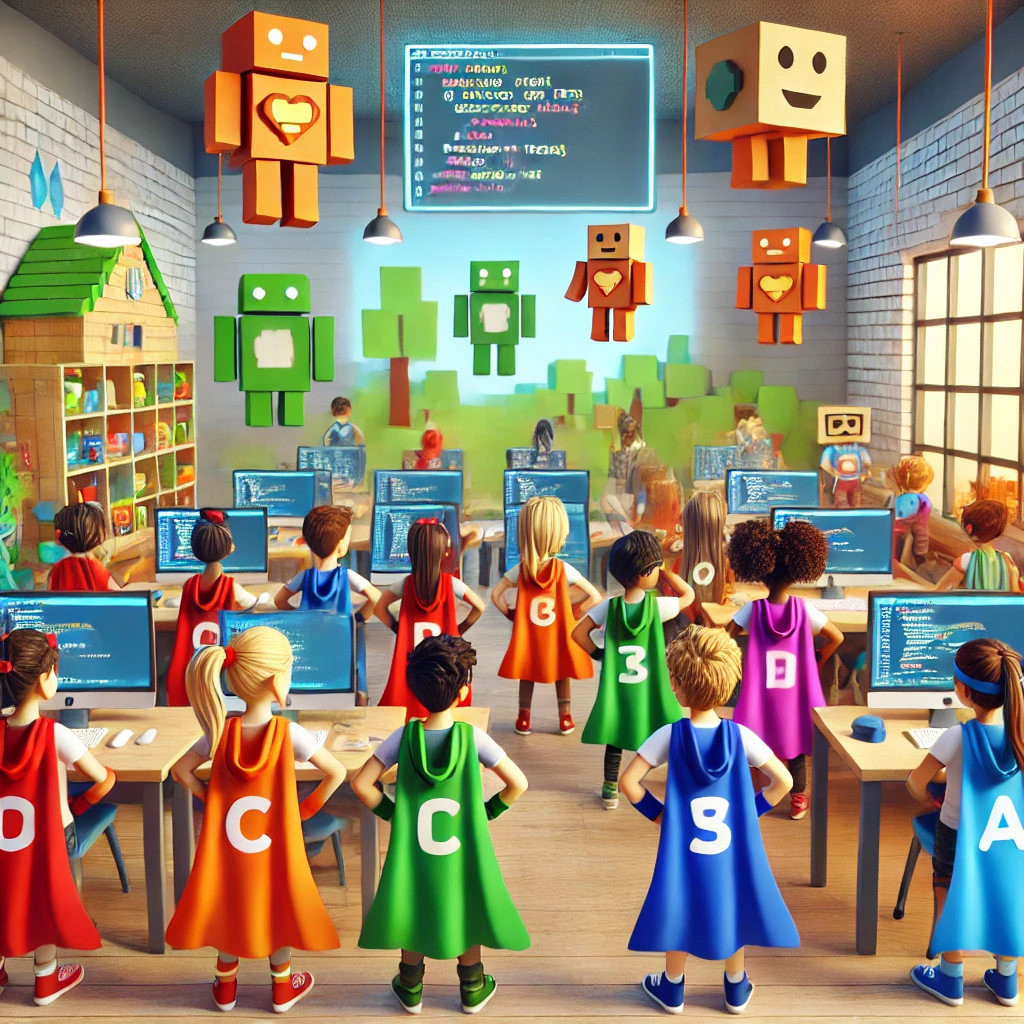Website designed with the B12 website builder. Create your own website today.
Start for free
In today’s rapidly evolving digital landscape, coding education plays a pivotal role in shaping the futures of children. As technology becomes increasingly integral to various aspects of life and work, understanding the basics of coding equips young minds with essential skills that extend beyond the classroom. By fostering problem-solving abilities and creativity, coding empowers children to think critically and approach challenges with confidence. Parents and educators are recognizing that teaching children to code isn't just about learning programming languages—it's about preparing them for a world where technology and innovation reign supreme.
Explore how coding education empowers children to thrive in a tech-driven world brimming with opportunities. With every line of code they write, children unlock pathways to future careers in fields like software development, data science, and artificial intelligence. As they harness the power of coding, they also build a foundation for essential life skills such as collaboration, persistence, and adaptability. This blog post delves into the importance of coding education, the myriad of opportunities it creates, and the vital role it plays in equipping the next generation to navigate and succeed in an increasingly digital future.
Understanding the importance of coding education for children
In today’s digital landscape, the ability to code has become a fundamental skill that shapes how we interact with technology. Teaching children coding not only equips them with relevant technical competencies but also enhances their problem-solving abilities and critical thinking skills. As children engage with coding, they learn to break down complex problems into manageable parts, fostering a mindset of innovation and resilience. This hands-on experience encourages creativity, as kids experiment with different programming languages and see their ideas come to life in the digital realm.
Moreover, coding education fosters collaboration and communication among young learners. Many coding projects require teamwork, teaching children how to articulate their thoughts clearly and work together towards a common goal. By participating in coding activities, children gain confidence in sharing their ideas and receiving constructive feedback from their peers. This kind of social learning not only prepares them for future endeavors in technology but also equips them with the soft skills necessary to succeed in any field. In essence, coding education lays a strong foundation for children, empowering them to navigate the complexities of a tech-driven world.
How coding skills open doors to future opportunities
In today's fast-paced, technology-driven environment, coding skills serve as a crucial asset for children. Learning to code equips them with problem-solving abilities that extend beyond the realm of technology. Kids who grasp the fundamentals of coding develop logical thinking and analytical skills, enhancing their overall cognitive abilities. These skills translate to various fields, from engineering and design to finance and healthcare, providing children with a competitive edge as they navigate their educational paths and career choices.
Moreover, coding opens up a world of creative possibilities. Children who learn to code can create their own apps, games, or websites, expressing their individuality and ideas through technology. Engaging in coding projects fosters innovation, encouraging young minds to think outside the box and tackle real-world challenges. In doing so, these budding programmers not only gain technical expertise but also cultivate a mindset of resilience and adaptability, traits essential for thriving in a rapidly evolving job market. By empowering children with coding skills today, we unlock doors to countless opportunities in their future.
Empowering children to thrive in a tech-driven world through coding
Coding education not only equips children with essential skills but also fosters critical thinking and problem-solving abilities. By engaging in coding activities, kids learn to approach challenges methodically, breaking them down into manageable parts and finding creative solutions. This analytical mindset is crucial in today’s fast-paced, technology-centric environment, where adaptability and innovative thinking are key to success. Embracing coding early on helps children build confidence in their abilities, promoting a sense of empowerment that carries over into other aspects of their lives.
Moreover, coding classes provide collaborative opportunities where children can work together on projects, enhancing their communication and teamwork skills. In a world that increasingly values collaboration—whether in a tech startup or a corporate setting—these experiences become invaluable. By participating in coding education, children not only learn to create and innovate but also develop the social skills necessary to thrive in diverse and tech-savvy workplaces. Ultimately, coding empowers the next generation to navigate and excel in a future where technology plays a central role in every industry.